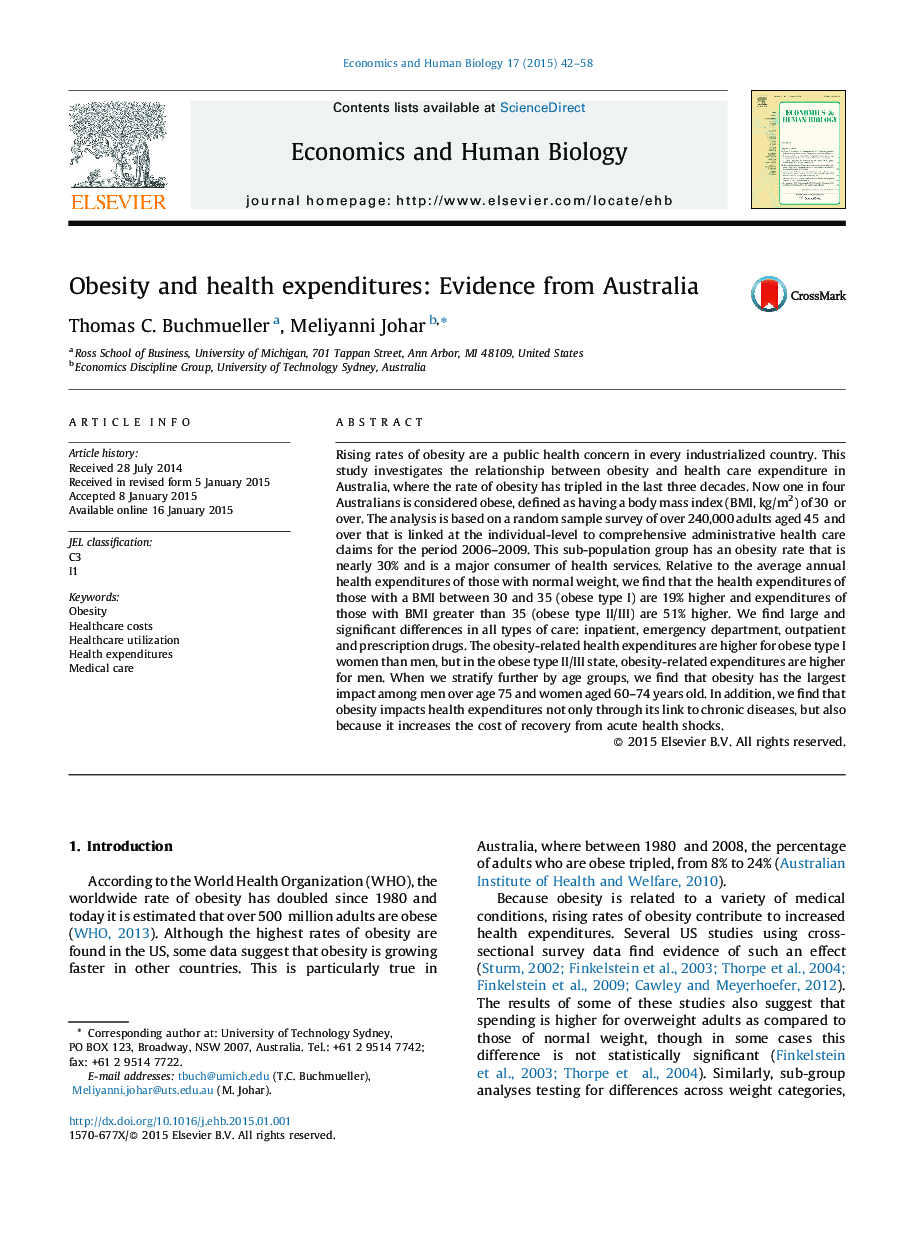| کد مقاله | کد نشریه | سال انتشار | مقاله انگلیسی | نسخه تمام متن |
|---|---|---|---|---|
| 5057045 | 1476562 | 2015 | 17 صفحه PDF | دانلود رایگان |
- We estimate the relationship between obesity and health expenditures in Australia.
- Obese adults have higher expenditures for all types of health care.
- A similar relationship holds for men and women and for all age groups.
- Much, though not all, of the effect appears to be related to chronic conditions.
- Type II/III obesity is also associated with more costly recovery from health shocks.
Rising rates of obesity are a public health concern in every industrialized country. This study investigates the relationship between obesity and health care expenditure in Australia, where the rate of obesity has tripled in the last three decades. Now one in four Australians is considered obese, defined as having a body mass index (BMI, kg/m2) of 30 or over. The analysis is based on a random sample survey of over 240,000 adults aged 45 and over that is linked at the individual-level to comprehensive administrative health care claims for the period 2006-2009. This sub-population group has an obesity rate that is nearly 30% and is a major consumer of health services. Relative to the average annual health expenditures of those with normal weight, we find that the health expenditures of those with a BMI between 30 and 35 (obese type I) are 19% higher and expenditures of those with BMI greater than 35 (obese type II/III) are 51% higher. We find large and significant differences in all types of care: inpatient, emergency department, outpatient and prescription drugs. The obesity-related health expenditures are higher for obese type I women than men, but in the obese type II/III state, obesity-related expenditures are higher for men. When we stratify further by age groups, we find that obesity has the largest impact among men over age 75 and women aged 60-74 years old. In addition, we find that obesity impacts health expenditures not only through its link to chronic diseases, but also because it increases the cost of recovery from acute health shocks.
Journal: Economics & Human Biology - Volume 17, April 2015, Pages 42-58
